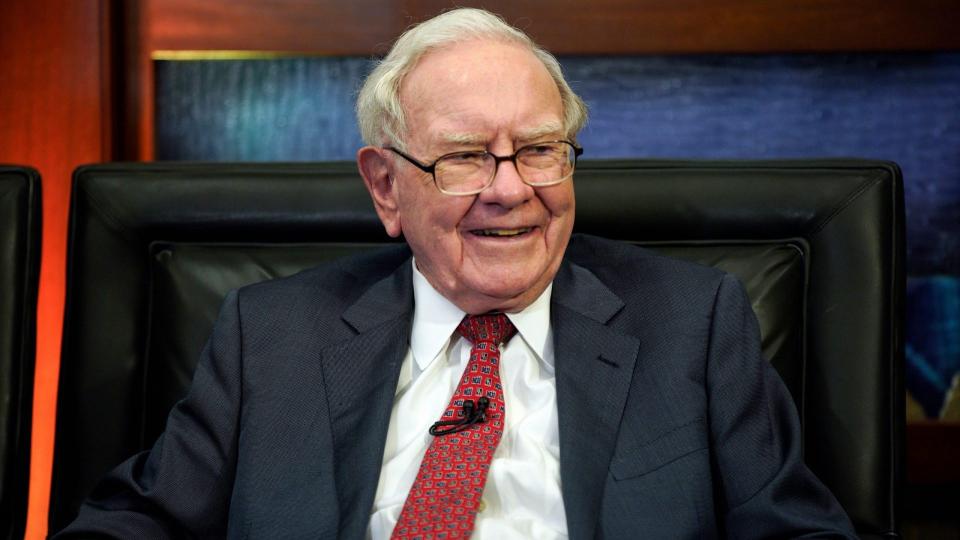4 Reasons Warren Buffett’s Value Investing Strategy May No Longer Pay Off

Warren Buffett, known for his investing prowess, champions the value investing strategy.
If you’re not sure what that is, Joseph Favorito, certified financial planner (CFP) and founder and managing partner of Landmark Wealth Management LLC explained it like this: “Value investing is about finding opportunities in companies whose stock prices don’t necessarily reflect their fundamental worth. Value investors look for companies trading at a share price that’s considered a bargain. As time goes on, they expect the market will properly recognize the company’s value and the price will rise.”
It sounds promising, but here are four reasons why Buffett’s strategy may no longer pay off.
Trending Now: I’m an Investor: I’m Making These Money Moves Immediately If Trump Wins
Discover Next: 6 Subtly Genius Things All Wealthy People Do With Their Money
Wealthy people know the best money secrets. Learn how to copy them.
Current Challenges in Traditional Value Investing
Dennis Shirshikov, professor of finance at the City University of New York and the head of growth at Summer, said that traditional value investing faces several significant challenges in today’s market.
Be Aware: 3 Types of Investments Predicted To Plummet in Value in Summer 2024
Shift in Market Dynamics
“One of the primary issues is the shift in the market dynamics due to technological advancements and the rise of intangible assets,” Shirshikov said. “Companies today derive much of their value from intellectual property, brand reputation and digital platforms, which are not adequately captured in traditional financial statements. This makes it difficult for value investors, who rely on fundamental analysis of tangible assets, to identify undervalued stocks accurately.”
Prolonged Period of Low Interest Rates
Shirshikov said another challenge is the prolonged period of low interest rates, which has distorted asset valuations across the board. “With cheap money readily available, even companies with weak fundamentals have been able to sustain high valuations, reducing the pool of genuinely undervalued stocks,” he said.
Influx of Passive Investing
“Furthermore, the influx of passive investing through ETFs and index funds has altered market behaviors,” Shirshikov said. “These funds do not differentiate between undervalued and overvalued stocks, leading to a situation where stock prices are less reflective of their intrinsic value.”
Regulatory Changes and Market Globalization
“Regulatory changes and market globalization have also introduced complexities that traditional value investing frameworks may not fully account for,” Shirshikov said. “For example, geopolitical risks and trade policies can significantly impact companies’ valuations, but these factors are challenging to quantify and predict.”
How Value Investing Strategies Need To Adapt To Remain Relevant
Shirshikov said that to remain relevant, value investing strategies must evolve to incorporate new metrics and technologies.
“Investors should consider integrating alternative data sources, such as social media sentiment, online search trends and other real-time data points that can provide insights into a company’s future performance,” he said. “These non-traditional data points can help identify growth potential that is not yet reflected in the financial statements.”
Shirshikov said that adopting a more dynamic and flexible approach to valuation is also crucial.
“This involves using advanced financial models that factor in the value of intangible assets, potential future earnings and the overall market sentiment,” he said. “Investors should also pay closer attention to environmental, social and governance (ESG) factors, as these are increasingly influencing company valuations and investor preferences.
“Moreover, leveraging technology and artificial intelligence can enhance the precision of value assessments. Machine learning algorithms can process vast amounts of data quickly, uncovering patterns and correlations that human analysts might miss. These tools can help identify undervalued stocks more accurately by analyzing a broader set of variables.”
Is Value Investing Dead?
Favorito said not at all. “There are cycles to the market over time,” he explained. “Growth investing has been outperforming in recent years. However, historically higher rates tend to favor value stocks over growth stocks as companies with high short-term cash flow are less impacted by the higher cost of capital.”
Who Might Value Investing Not Be a Smart Move for?
Favorito said if you’re less concerned about dividend income and more of a speculator, then one could argue that value stocks would be less attractive.
“However, neither value nor growth is right or wrong,” he said. “A well-balanced investment strategy maintains exposure to both.”
Investing Alternatives To Consider
“In addition to stock market exposure that has a strong balance between value and growth, it’s important to make sure you have global exposure to both U.S. and foreign equities,” Shirshikov said. “It’s also important to have exposure to other asset classes, such as real estate, fixed income and commodities. All asset classes are cyclical. Trying to time the best opportunities is historically an exercise in futility.”
More From GOBankingRates
Here's the Salary Needed to Actually Take Home $100K in Every State
6 Things to Try This Week if You're Behind on Your Savings Goals
4 Reasons Retired Women Need More Money Than Men -- And What To Do About it
This article originally appeared on GOBankingRates.com: 4 Reasons Warren Buffett’s Value Investing Strategy May No Longer Pay Off

 Yahoo Finance
Yahoo Finance 